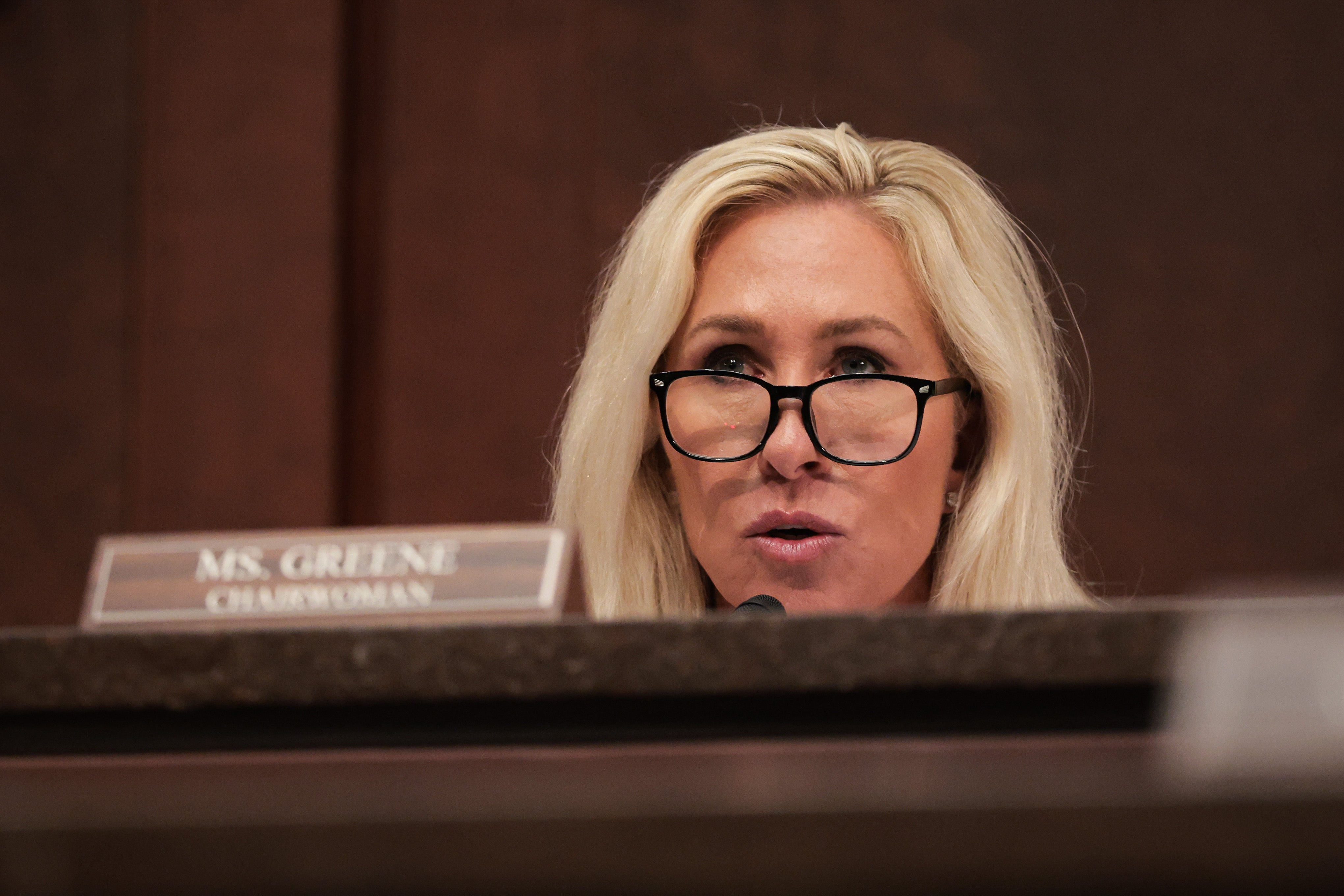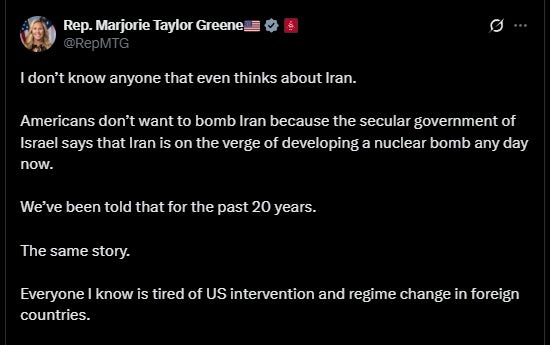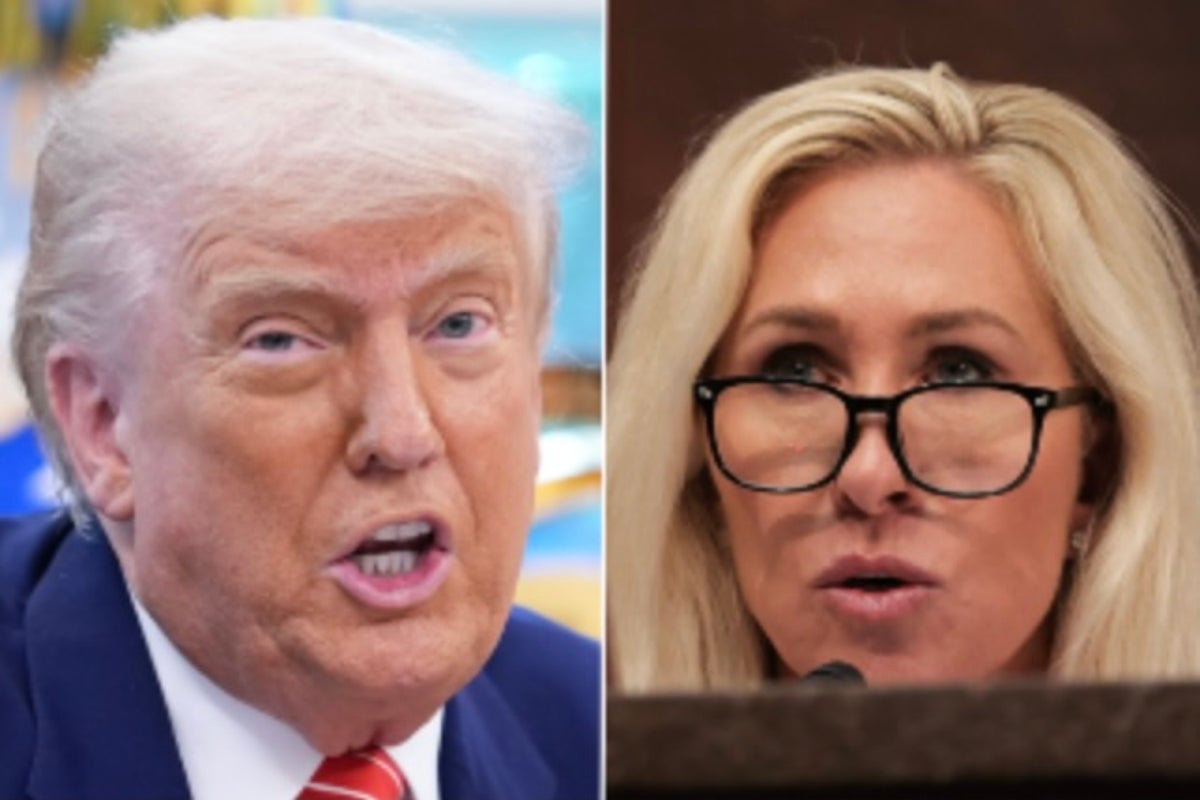A top MAGA firebrand in Congress, who has been a staunch supporter of Donald Trump, has come out strongly against the president’s policy of defending Israel against regional aggressors like Iran.
Marjorie Taylor Greene joined the chorus of both “America First” isolationists and far-left progressives opposed to the U.S. being drawn into a war with Iran as she tweeted late Wednesday evening: “Americans don’t want to bomb Iran because the secular government of Israel says that Iran is on the verge of developing a nuclear bomb any day now. “
Greene added that she doesn’t “know anyone that even thinks about Iran” in her district.
Her tweet came in response to a flurry of reporting around Washington indicating that the State Department’s decision to move nonessential embassy staff out of Baghdad, Iraq’s capital, was tied to concerns about violence escalating in the region as a result of an impending Israeli attack.
Indeed, on Thursday Trump said to reporters that an Israeli strike on Iran ‘could very well happen.’

That attack, which the president was reported to have gotten Israel to forestall earlier this year, now seems to be greenlit. Trump told reporters he declined to support the Israeli plan in May as he sought a new nuclear agreement with the Iranian government.
“President Trump is committed to keeping Americans safe, both at home and abroad. In keeping with that commitment, we are constantly assessing the appropriate personnel posture at all our embassies. Based on our latest analysis, we decided to reduce the footprint of our Mission in Iraq,” an agency spokesperson told The Independent on Wednesday.
The president himself added to reporters: “They can’t have a nuclear weapon. Very simple – they can’t have a nuclear weapon.”
On Wednesday, as reports of the planned Israeli strike began to emerge, a senator on the Armed Services committee, Tom Cotton, tweeted that Defense Secretary Pete Hegseth had “confirmed that Iran’s terrorist regime is actively working towards a nuclear weapon”. Hegseth testified to the committee earlier in the day.
“For the sake of our national security, the security of our allies, and millions of civilians in the region this cannot be allowed to happen,” Cotton, who hails from the Republican Party’s hawkish wing, added on Twitter.
The strike, should it take place, would be a major impediment to the continuation of direct(ish) talks between Washington and Tehran regarding a new agreement aimed at constricting Iran’s nuclear program to civilian usage only. A sixth round of talks headed by Steve Witkoff, Donald Trump’s envoy to the Middle East, were set for this weekend.

CBS News reported Wednesday evening that Israel was ready to carry out a strike on Iranian nuclear facilities, and cited a US official as saying that the Trump administration was now looking for ways to actively support the strike. US involvement would not include direct action by B-2 bombers, restricting the attack to surface-level areas of the Iranian facilities, according to CBS’s sources.
An Iranian dissident group in exile, the National Council of Resistance of Iran (NCRI), showed satellite imagery of sites it said were key to the Iranian nuclear weapons program this week at a press briefing in Washington. The NCRI’s reporting, citing sources on the ground within Iran, identified the locations and purposes of several sites tied to the nuclear program in the country’s mostly-desert province of Semnan which it said had been largely militarized for the purpose of concealing the project. One of the sites identified by the NCRI as the Sorkheh Hesar site supposedly hosts an underground test facility.
Iran’s foreign minister told reporters on Wednesday that US bases and facilities in the region would be potential targets for retaliatory strikes were Israel to carry out an attack with US assistance.
Trump has long veered towards the isolationist wing of his party and is an outspoken critic of US involvement in just about every sphere of geopolitics. But on the issue of Iran, Trump has treaded a middle ground: his first term was defined by a “maximum pressure” policy of tough sanctions and political pressure, which gave way to an openness to negotiations upon the beginning of his second presidency.
Greene is one of his strongest allies in that regard, as a vitriolic opponent herself of aid to Ukraine and the NATO alliance.
But even as the president has engaged the US in the first semi-direct negotiations with Tehran since the Obama administration, he has maintained longstanding US policy that Iranian development of nuclear weapons is a red line.



